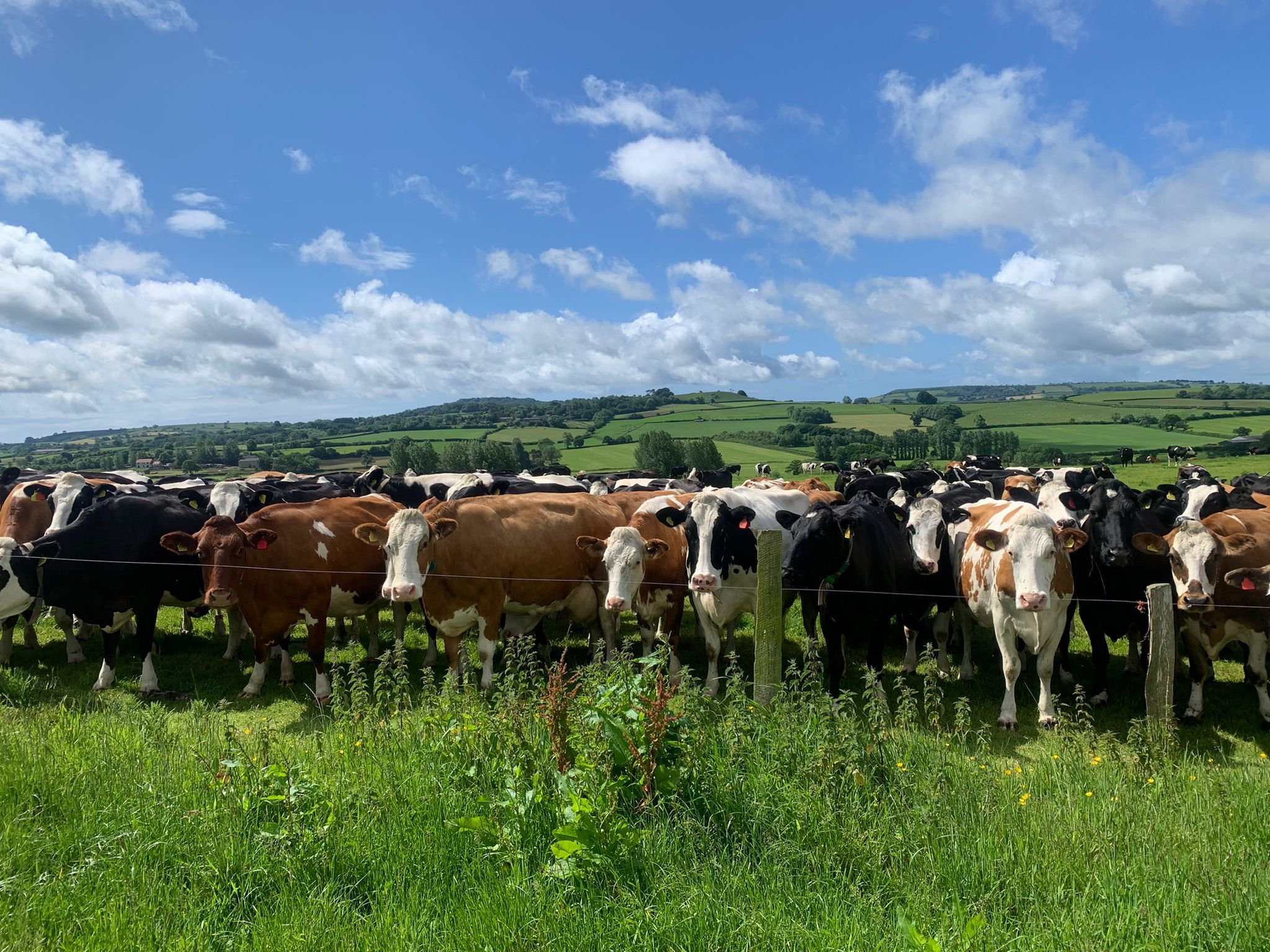Our Story
Seaborough Manor Dairy
Seaborough Manor is situated at the most western foothills of the Dorset Downs. In West Dorset, along the River Axe. Seaborough gained its name from Anglo Saxon for seven hills - ‘seveberge’.
The first and most famous of those hills is Pilsdon Hill, a Celtic hill fort.
Next is Lewesdon Hill , the highest hill in Dorset, which is set back from the neighbouring Jurassic coast.
These are followed by Blackdown Hill, Seaborough Hill, Mosterton Down, Norton Hill and Blagdon Hill, all of which surround Seaborough.
In the lowlands of West Dorset, sheltered by these hills, Seaborough Manor has a long history of dairy farming.

In 1086 the doomsday book listed 7 cows, 5 pigs, and 59 sheep…
…being held by the bishop of Salisbury.
Seaborough Manor has had a connection to monks and cheese for many centuries, being educated in the methods of cheese making or making cheese for the monks and others. Monkey Chop derives from this association. Monkey Chop farm, part of the Seaborough manor estate, is named after the byway known as Monkey Chop lane. Until the 16th Century monks would cut reeds from the river Axe as Forde Abbey is only 4 miles downstream, they would hold some of the services in the local church in exchange for their overnight stays and shelter from the elements.
Today the herd of 270 cows at Seaborough Manor are grass grazed for over 200 days of the year and are of mixed breeding. This cross-breeding creates a healthier dual-purpose cow which brings the traits for tasty cheese making, higher constitutes of butterfats and casein. This makes a great yielding creamy cheese.
To create our Monkey Chop cheeses, we use the morning milk - still warm, still fresh.
This enables us to produce sustainable great tasting cheeses.
Conservation
We have built a new lagoon to harvest the natural nutrients of the farm. This allows us to use these nutrients by application into the soil when the grass is growing during the spring and summer seasons, cutting down on the fertilisers used. Stopping nutrients from leaching into the river.
The river Axe has been fenced on one side to allow wildlife and the plants to return, including the reeds the monks would have chopped all those centuries ago.
We have started to keep bees to help pollinate these wildflowers and to make honey - ‘Joseph’s Honey’
This is an enterprise we are looking to expand and sell online and elsewhere.
We don’t use sprays on the farm. Weeds are cut or topped to stop them from seeding. Maize is not grown on the farm. This enables us to have a no-spray policy, helping the bees and butterflies and also stopping soil erosion, and preserving the fertile soil in the field and out of the river.
In the Seaborough valley, we have planted over a mile of hedgerows and trees.
We don’t just look after our environment. We also look after the rainforests by not feeding soya or GM crops
We do feed hay from old parkland. This is fed to each cow during the winter. Helping with long fibre in their diets, helping the cows produce higher butterfat milk for our creamy cheese. The hay from this old pasture also brings different moulds and yeasts, all helping with the flavour of the cheese.
Monkey Chop Cheese
Seaborough Manor Limited
The main aim of our project is to make local British cheese from milk
produced on the farm.
It is part funded by the European Agricultural Fund for Rural Development.
The European Agricultural Fund for Rural Development.
Europe investing in rural areas.


